Originally posted by Pelister
It is dangerous using it as any kind of marker of identity, especially language.
Trying to prove that the ancients were 'Slavs' is admirable, but you are approaching the whole problem from the wrong angle.
Your are working within Western discourse in an attempt to change it and naturally carry many of its assumptions without question.
The 'Slavicisation' of the Macedonians and their language, has to stop SoM.
It also makes historical sense because the bible was written in the Cyrillic alphabet based on the Macedonian language. It makes perfect sense that Macedonians would use the term 'Slavno' as a marker of Christianity.
Here is a very rough schematic of the term 'Slav' and the different meanings attached to it, by different authors at different places in time.
6th century - Sklavenoi (invaders) - foriegn designation
11 century - Slavno (christian) - Macedonian designation
16 century - Slav (invaders) - Western designation
17 century - Slav (invaders and language) - Western designation
19 century - Slav (invaders and language, and ethnic and national identity) - Russia and Greece
6th century - Sklavenoi (invaders) - foriegn designation
11 century - Slavno (christian) - Macedonian designation
16 century - Slav (invaders) - Western designation
17 century - Slav (invaders and language) - Western designation
19 century - Slav (invaders and language, and ethnic and national identity) - Russia and Greece
6th century - Sklavenoi; a foreign (Roman) interpretation based on Sloveni, the generic self-designation of a group of linguistically related peoples who became increasingly more cohesive during Gothic, Hunnic and Avar rule, and were involved in invasions and rebellions against the Roman Empire. It was also applied to peoples with an Iranian or Turkic element that were in the presence of Sloveni. Their main living expanse was spread across the north of the Danube. Together with those from the Baltic area and the greater regions of Macedonia, Illyria and Thrace, their language(s) formed a large sub-group of Indo-European languages. Their advances against the Roman Empire which were likely to have been accompanied by local assistance (at least in some cases), had an impact on all of the Balkans.
7th-8th centuries - Sklavinia; the name given by the Romans to the autonomous enclaves in the Balkans. These enclaves were either established or dominated by the Sloveni element among the Sklavenoi, and, as warrior elites who brought about a different socio-political system across the region in terms of governance, they managed to influence the languages of the indigenous majority, a process that was facilitated by the fact that the latter were related to the language(s) of the Sloveni.
9th century - Sloveni, Slovenski; recorded for the first time in Old Macedonian literature, in reference to peoples and/or languages of Moravia and Macedonia. Although the Old Macedonian version of Slovenski had developed local characteristics as a result of fusion with ancient Macedonian, Illyrian and Thracian, Moravians had no major issues with comprehending the literary works of Macedonian saints and scholars, and these works quickly spread to the kingdoms and entities who spoke related languages across Europe.
10th-18th centuries - Sloveni, Slavjani; continued to be used as an identity based on linguistic commonality in varying degrees during the following centuries, alongside ethnic, geographic, religious, cultural, social and political identities, some of which were more fluid than others. The designation of Slavjani arose at some point and essentially meant the same as Sloveni, but with an additional connotation relating to Christian worship.
19th century - Nationalism; as it swept across Europe, various peoples began to assert their historical and ethnic identities over the common linguistic identity of Sloveni or Slavjani. At the same time, some peoples were working towards developing collective identities for different reasons, such as 'Illyrians' and 'Bulgarians'. In addition, 'Pan-Slavic' ideologies began to arise that were based on the presumption that all Slavic-speaking peoples originated from the same tribe. Meanwhile, the Germanic and other sections of the western world began to increasingly regard Slavic-speaking peoples as a foreign element, while promoting Albanians and Greeks as the only indigenous peoples in the Balkans.
Let me know what exactly you disagree with and I will provide the relevant evidence and/or research. I would like to point out that during this whole period there were references made to Macedonians. I have no doubt that a Macedonian culture and identity existed and that it ultimately proved to be most prevalent, but that doesn't mean everything else should be ignored when discussing our history, particularly the pan-linguistic identity which our own ancestors used in certain periods and contexts.
The first thing you need to come to terms with is the fact that our language has undergone changes as a result of the 6th century invasion of Slavic-speaking peoples from north of the Danube. The proof is more than obvious through a comparison of placenames before and after, and a comparison of Slavic languages to that which remains of the Paleo-Balkan languages. If you want to lend weight to whatever argument you're trying to make, I would suggest that you address this point first and foremost.
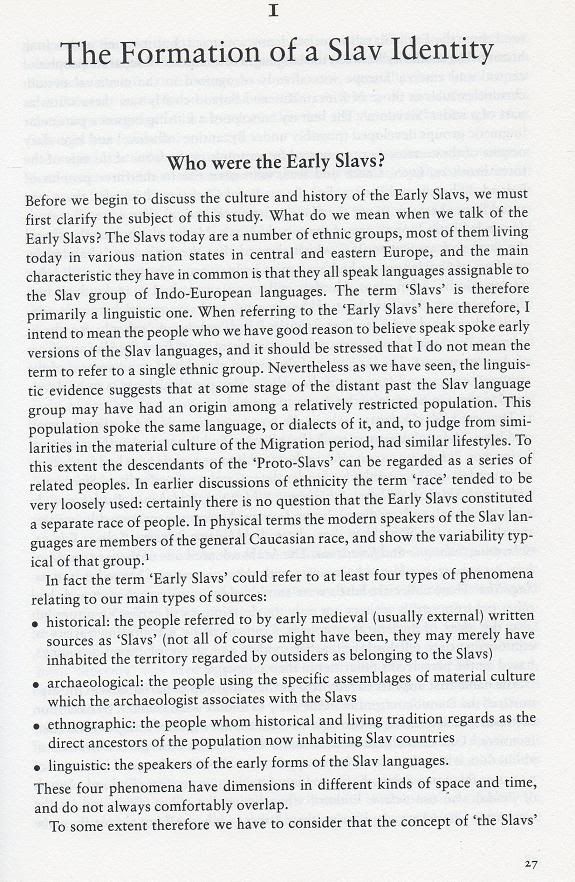
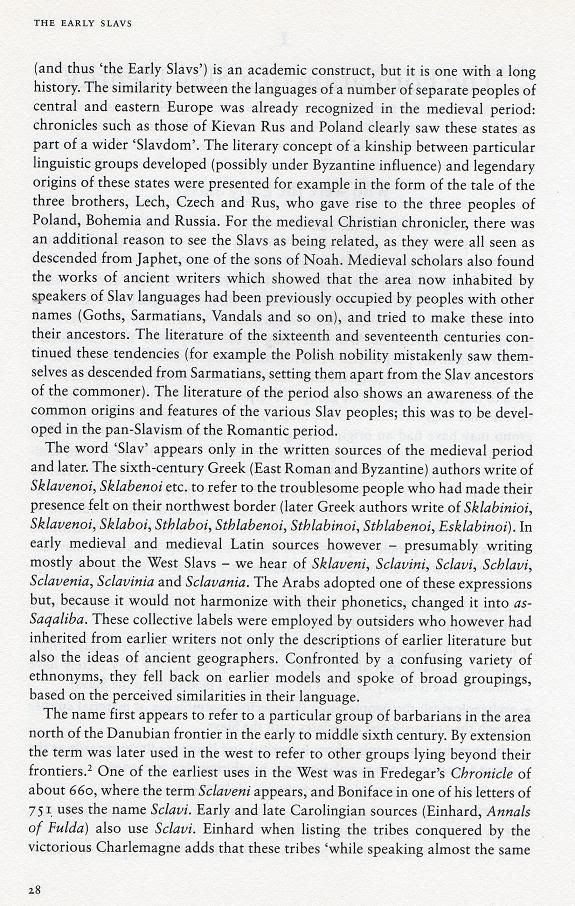
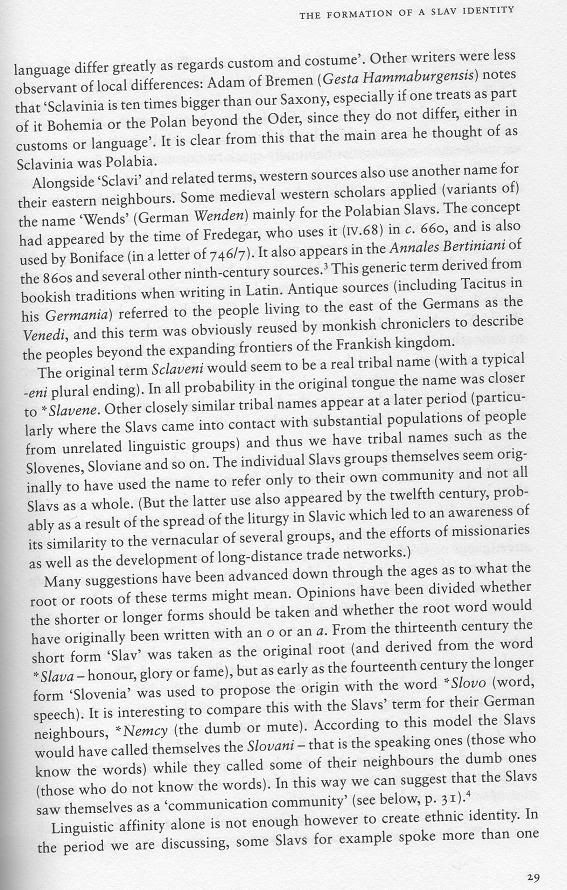
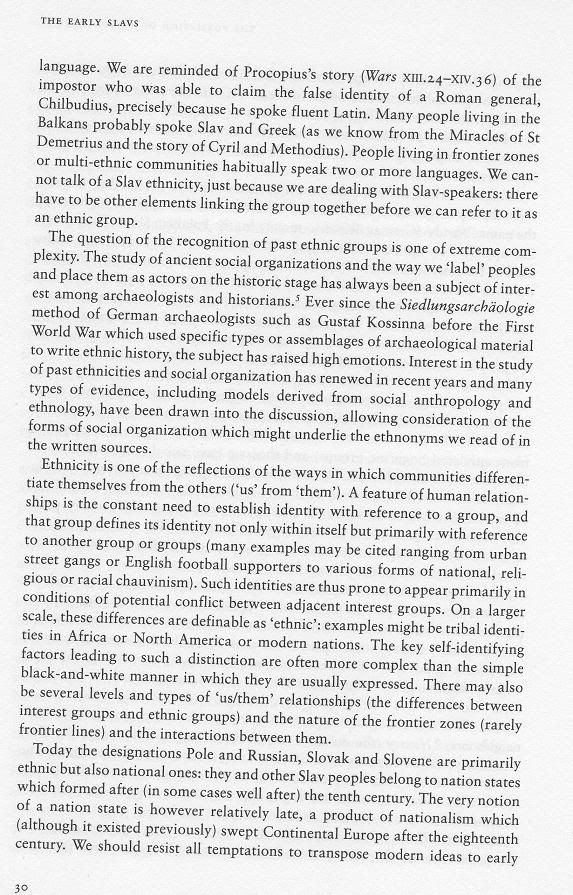
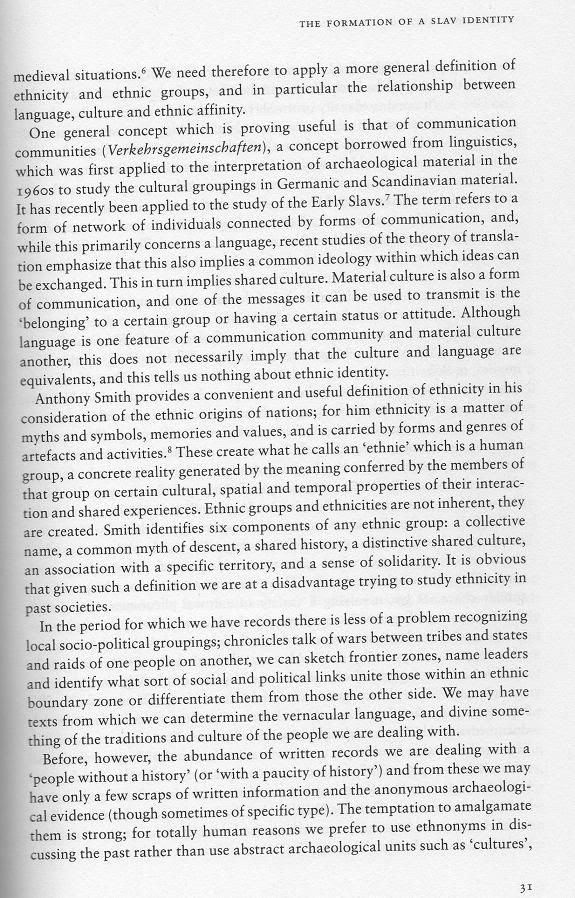
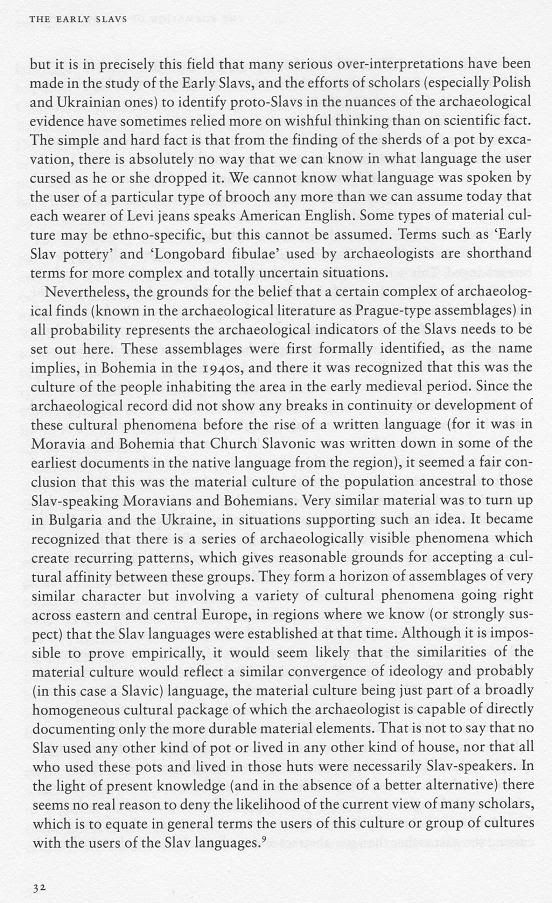
Leave a comment: